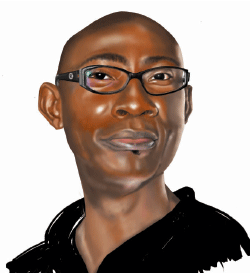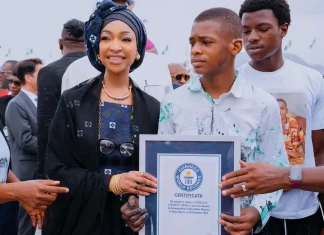Concern about inability to conduct a free, fair and violence free poll rises as February 14 draws closer. The signs of violence before and after the elections are there in unprecedented measure across the country.
But politicians and their parties are doing little to tame this dangerous trend which may consume all of us if not well handled urgently.
After the presidential election result was released in 2011 an unexpected violence broke out in parts of the country which took several lives.
It is cheery news that the federal government has released the N3 billion it pledged for victims. That much was learnt last week when Kaduna State Governor, Mohammed Yero, addressed indigenes of the state after the visit of Vice President Namadi Sambo, to solicit their vote.
But that the federal government has redeemed the pledge is not the issue. The issue is the cost of violence. That the federal government is coughing out N3 billion that would have been used to improve existing infrastructure or initiate fresh ones is as instructive as the lives lost to the violence that cannot be recovered.
The beauty of democracy is that elections present a golden opportunity for voters to demonstrate commitment to democratic ethos – values and institutions. Political leaders and advocates of democracy must see such as the abiding principle in the clamour for a democratic state.
We have, individually and collectively, shirked the responsibility to ensure that our society is preserved from violence, before and after elections
From the East to the West, North to South, the language of political leaders is war, war, and more war. Yet, we are still some weeks away from the ballot war. Orchestrated attacks against political opponents are reported every day in the media.
Thuggery and similar negative election tendencies envelop the landscape, and yet we think it is normal.
Early last week, there were reports of the attack on the home of All Progressives Congress (APC) Chairman, John Odigie-Oyegun by unknown gunmen.
The uninvited guests removed the window burglar bars to enter the building, held the family hostage, and ransacked Oyegun’s bedroom. Fortunately, he was not at home; otherwise the story would have been different.
There were also reports of attacks on APC members in Rivers and Ebonyi States as well as explosion at the secretariat of the Progressive Peoples Alliance (PPA) in Umuahia, Abia State.
When I watched the telecast of the attack on APC office in Rivers State my mind went straight to the cost of the action and who would pay the ultimate price.
Before then, there had been reports of attack on the campaign vehicle of President Goodluck Jonathan by hoodlums suspected to be loyal to the APC in Jos. Although APC presidential candidate, Muhammadu Buhari, distanced his campaign from the attack and blamed it on Peoples Democratic Party (PDP) supporters, the PDP thinks the opposition is guilty of the crime.
PDP National Publicity Secretary, Olisah Metuh, feels the sponsors of the attack on Jonathan’s vehicle wanted to provoke revenge and counter attacks. “The nation cannot afford any kind of tension at this stage of its political development” and the “PDP is totally committed to the unity and peace of our dear nation,” said Metuh.
Unfortunately, on Tuesday, January 13, it was reported that the APC destroyed five vehicles belonging to the PDP in revenge attacks in Gona town, Gombe State.
Leaders of both the PDP and the APC have negatively influenced their supporters to toe the path of violence without letting them know the effect.
However, the beauty of electioneering finds expression in the tolerance and peaceful co-existence of all the parties and their members. That we have reduced our environment to that where callousness and venom are visited on fellow Nigerians shows we are way back from the demands of democracy.
It is as a result of a lack of issue-oriented electioneering where intellectualism meets rhetorical prowess, obviously because the politicians are bereft of what to tell the electorate, that the recourse to violence is the only alternative left.
If it was in this same country that the electorate fell over themselves to catch a glimpse of Nnamdi Azikiwe, Obafemi Awolowo, Kingsley Mbadiwe, Aminu Kano, Adamu Waziri and the flamboyant Chuba Okadigbo speak, we need wonder what has become of today’s politicians and their lack of aura and persuasion.
Our democratic institutions have not lived up to expectation compared to what you get in other parts of the world because we pay little attention to the things that matter. What our politicians go to learn from the few existing ones is how to make inflammatory rhetoric and dish out abusive language that will make the ignorant electorate take to the streets with dangerous weapons.
“The United States strongly supports a free, transparent, credible, inclusive, and nonviolent electoral process. We continue to call upon all Nigerians to refrain from advocating, fomenting, or condoning violence before, during and after the elections,” says the U.S. Ambassador to Nigeria, James Entwistle, at a workshop organised for journalists last week in Kaduna on “Community Reporting for Building of Democratic Values in the Run-up to the 2015 General Election.”
If Nigerian politicians reflect on their foul comments in the build up to the elections – that they will make Nigeria ungovernable for Jonathan if he wins, and the allusion to Boko Haram – they will be more circumspect.
Nigerians and world leaders who have seen through the danger ahead and what the nation stands to lose if the trend continues have cautioned the politicians against inflammatory comments.
On Tuesday, January 13, former Secretary General of the United Nations, Kofi Annan noted in Abuja: “But we know that every election since 1999 has been fraught, and marred by violence. Many people I have spoken to worry that violence might once again disfigure and undermine the electoral process. So I entreat all Nigerians, and especially the political actors, not to put the amazing progress Nigeria has made in jeopardy. Politics should be about serving the higher interests of the country and not self-serving…. What happens in Nigeria has an impact far beyond its borders. Nigeria’s success in the forthcoming election will be Africa’s success.”
Annan spoke at the Nigeria Civil Society Situation Room’s Roundtable on the Role of Civil Society in Ensuring Electoral Integrity organised by the Policy and Legal Advocacy Centre.
The Letter to Nigerians written by former Head of State, Abdulsalami Abubakar, looks like a follow up on Annan’s advice.
Abubakar urged “all Nigerians to do whatever is necessary to ensure that peace and normalcy prevail before, during, and after the coming elections in February.
“Political parties must ensure that their members avoid campaign of calumny, character assassination; and that they shun and condemn the developing culture of political violence as they strive to enthrone an ethic of politics without bitterness….”
Despite the promise by both the PDP and APC to adopt decency, we are yet to see that translate to reality. One accuses the other of being desperate and not playing by the rules.
Do they know they are putting Nigeria on the edge? Why should they think they are bigger than the country and can afford to dish out rubbish from their mouth in the name of politicking?
Where are our security agencies who ought to check these fellows, some of whom are not properly schooled in the art of communication? Who is also vetting the political adverts and campaign advertorials that dot the pages of national newspapers?
We cannot afford to slain Nigeria on the altar of indecent political propaganda simply because some fellows want to occupy political offices that do not belong to them.












